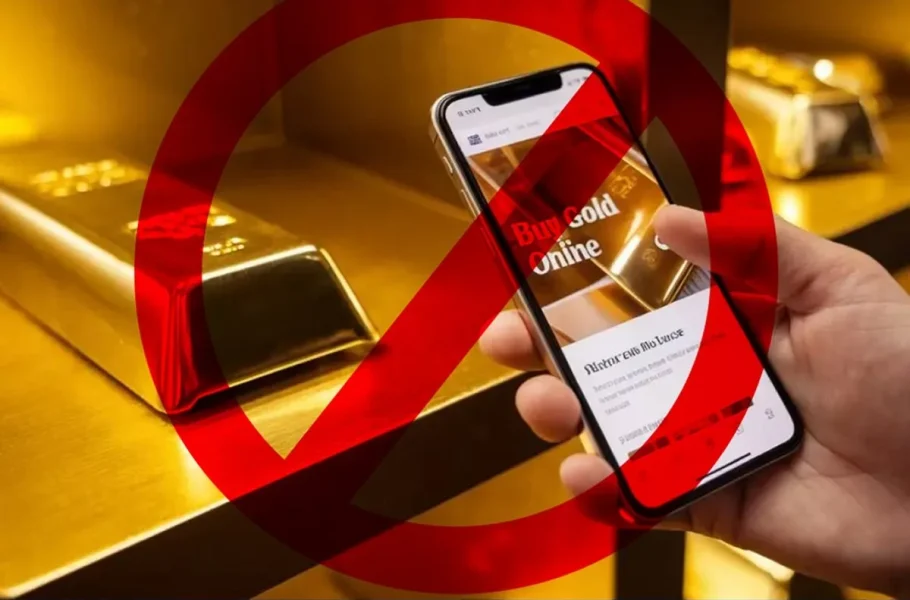
Iran’s Sudden Ban on Online Gold Platforms Sparks Legal Backlash: Interview with Tech Law Expert
Why the move not only contradicts Iran’s constitutional guarantees but also threatens public trust and the country’s digital economy?
Iran’s abrupt suspension of payment gateways for online gold trading platforms has ignited debate in legal and business circles. While authorities allowed gold trading to resume in traditional markets and exchange-traded funds, digital platforms remain barred, raising questions about legality, transparency, and economic impact. To assess the implications, Digiato spoke with Mahshid Asadinia, a legal advisor specializing in innovation and financial technologies. In this interview, she outlines why the move not only contradicts Iran’s constitutional guarantees but also threatens public trust and the country’s digital economy.
Q: The government blocked payment gateways for online gold platforms without prior notice. From a legal perspective, how do you view this decision?
Asadinia: After the recent events and the sudden blocking of online gold trading platforms, it is crucial to analyze the action in light of fundamental principles of public law, property rights, and comparative legal experience. This decision carries wide-ranging economic and social consequences. More importantly, it directly touches on core constitutional principles.
Iran’s legal system grants the Central Bank supervisory powers over payment systems under the 1972 Monetary and Banking Law and the regulations of Shaparak, the national payments operator. The Anti-Money Laundering Law (2019 revision) also allows authorities to take emergency steps in exceptional cases, such as freezing accounts. However, these powers are neither absolute nor unconstrained. Articles 22 and 46 of the Constitution protect individuals’ property rights, and deprivation of those rights must be based on clear legal grounds and due process.
Q: Does this decision amount to a violation of rights such as ownership and freedom of trade?
Asadinia: Yes, there are strong grounds to argue so. Article 30 of the Law on the Implementation of General Policies of Article 44 of the Constitution explicitly states that no individual or company may be deprived of lawful business rights except under explicit law and due legal procedures. The E-Commerce Law of 2003 further recognized the validity of digital transactions and gave electronic contracts full legal standing.
Blocking online gold platforms suddenly, and without a clear legal order or transparent justification, clashes with these protections. It undermines legitimate ownership rights and limits economic freedoms guaranteed by law.
Q: What recourse do platforms have to challenge the suspension?
Asadinia: If restrictions are imposed without a transparent process, avenues for legal challenge do exist. Under the Civil Liability Law of 1960, the government or any authorized body could be held responsible if damages are inflicted unnecessarily on economic actors or users’ legitimate expectations. In principle, this would oblige the state to either restore the platforms to prior conditions or compensate for losses.
Q: Some officials suggested the move was a security measure during wartime conditions. Does that justification stand?
Asadinia: In moments of crisis—such as military tension or severe currency volatility—governments sometimes take extraordinary steps. The Iranian state’s concerns about speculation and market manipulation are understandable. But even emergency measures must be proportionate, transparent, and legally grounded.
The absence of prior notice, lack of clear regulations, and failure to provide remedies for affected businesses make this restriction problematic. More than a week after the ceasefire, continuing the block signals weak regulatory governance rather than prudent crisis management.
Q: How does Iran’s approach compare with other countries?
Asadinia: There are precedents worldwide. In 1933, the U.S. government temporarily banned private gold ownership under Executive Order 6102. India has long imposed tariffs and strict rules on gold imports to stabilize its balance of payments. Turkey has restricted gold flows during currency crises.
But the key difference is transparency. In those cases, restrictions were imposed through formal legislation or clear executive orders, often with notice periods. Nowhere is it common practice to abruptly disable licensed online platforms without a published framework.
Q: Many of these platforms operate with official licenses. Does the ban affect their legal status?
Asadinia: Absolutely. Many online gold trading services hold permits from trade associations or relevant regulators. These licenses form the legal basis of their operations. Blocking their payment gateways without a court ruling or explicit administrative order violates acquired rights and undermines economic security. This is why the move could become the subject of legal claims for damages.
Q: Beyond the legal aspects, what are the broader consequences of this policy?
Asadinia: The damage is twofold. First, it creates economic discrimination: gold can still be traded in traditional markets and exchange-traded funds, but not on online platforms. This double standard undermines distributive justice and equality under Article 19 of the Constitution.
Second, it erodes public trust. Citizens and businesses expect transparency, predictability, and fairness in regulation. When sudden and opaque restrictions are imposed, the result is weakened confidence in both the market and state institutions. For entrepreneurs, the sense that rules can change overnight discourages investment and innovation.
Q: What is your overall conclusion?
Asadinia: While the government’s intent to stabilize markets and prevent short-term speculation may be legitimate, the method is flawed. Emergency restrictions must respect the principle of proportionality, provide transparent reasoning, and include channels for appeal and compensation. Otherwise, they undermine the very stability they aim to protect.
In short, abrupt measures like blocking licensed online platforms without due process threaten not only constitutional guarantees but also the future of Iran’s digital economy.












